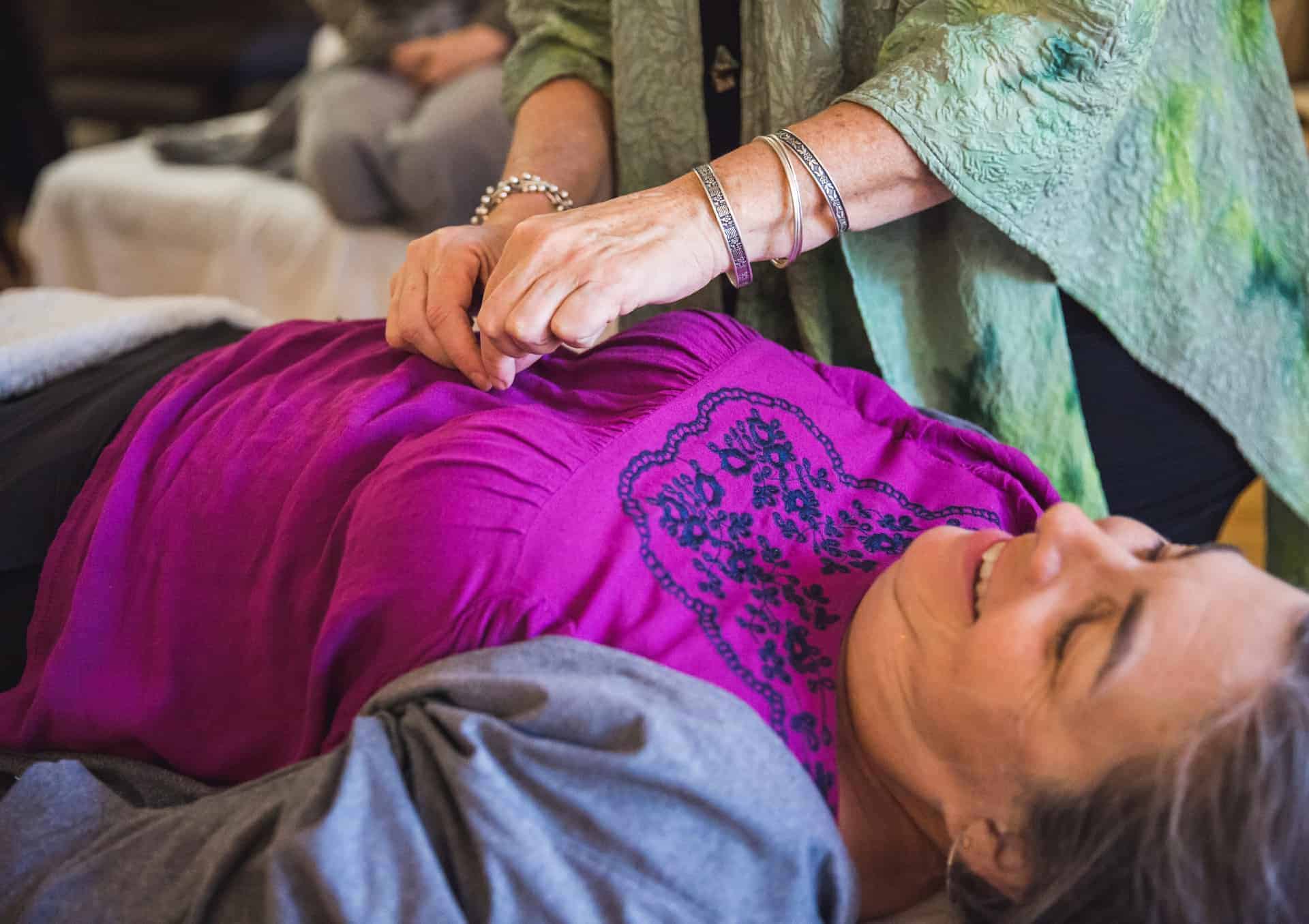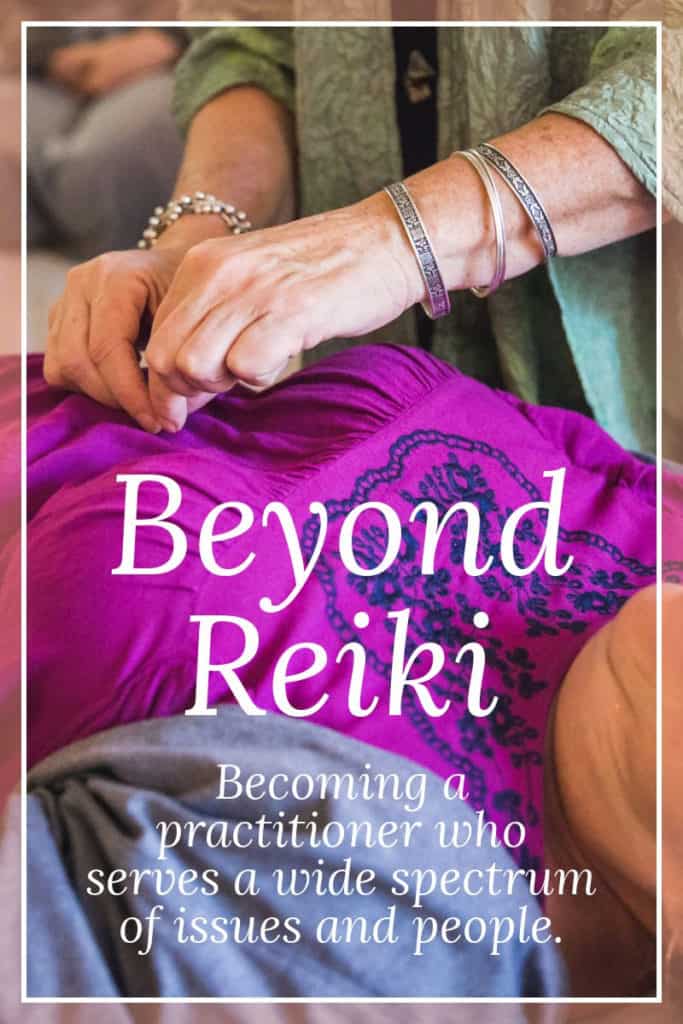A friend once told me that he could find a Reiki Master anywhere in the world by shouting, ‘Is there a Reiki Master in the house?’ An amusing anecdote, with a measure of truth. A recent Google search on ‘Reiki Training’ yielded over 11 million results.
To its credit, Reiki has done an enormous service to alternative healing practices because it has normalized energy healing. Reiki can be found in hospitals, clinics, offered as a PTSD treatment, as a form of relaxation, incorporated into massage, facials and other aesthetic treatments. It’s done on animals, it’s done at parties. Reiki is ubiquitous, and therefore an accessible portal into energy healing.
More About Reiki
- Reiki is an energy healing modality that delivers Chi. Sometimes called God Energy, Chi is life force energy. Chi is typically associated with the meridians. Yet many Reiki Masters are trained to work with the chakras, which are generally associated with Prana. There is a subtle but important difference in the two energies that seems to have been lost in Western culture, rendering Chi as a resource to chakra healing.
- Reiki has become commoditized, which generally diminishes its value. Many people have been trained in the modality and give it away for free. Spend an hour on social media and notice the ‘sending Reiki’ comments; uninvited healing energy sent when an illness, complaint or disease is mentioned. Unsolicited and free, a fraught combination for practitioners bound to ethical practices and standards.
- While free Reiki may be perceived as kind and generous, it makes it difficult for Reiki Masters to earn a living, or set a session rate that is vetted positively against a free treatment.
- There is a wide variance in the quality and format of the levels of training. Potential students discover multiple teaching approaches, timeframes and price points for attunements and ascending the ‘mastery’ ranks. This can create poorly trained ‘Masters’ who lack the benefit of a quality learning experience. With Reiki so pervasive, it’s difficult to discern the quality of one Reiki Master or Master Teacher from another.
- A Reiki Master may not have the tools and expertise to treat complex cases. The Mastery title can be misleading. It’s possible to attend a few weekend workshops and be conferred the title of Reiki Master.
- Reiki training generally encourages practicing on friends and family. Doctors and other medical and clinical professionals do not work on their friends and family. Why? Because it’s fraught with complexities like personal agendas, inappropriate levels of responsibility, and the possibility of malpractice or ineffective treatment.
A Practitioner’s Role & Task
Effective energy practitioners learn to treat and resolve complex cases. They benefit from having an understanding of anatomy & physiology, auto-immune diseases, cancer, diabetes, Lyme and other common and more obscure diagnoses. They learn therapeutic listening to discern what a client may not actively articulate. They assess carefully to develop an effective treatment strategy. Practitioners develop collaborative relationships with medical and/or clinical teams and integrative practitioners, along with a referral network for other modalities that support healing and evolution.
On a more subtle level, energy practitioners become facile with spotting a client’s spiritual bypass, as a means to avoid inner work, or triggering issues and diagnoses. They become adept at reframing thoughts, beliefs and intentions, to help clients consciously embody an inner landscape that invites healing and evolution.
Getting to Root Cause
An illness in the body is often ‘the tail wagging the dog’. The disease or illness may have its roots in other places. For example, emotional patterns or blockages, unprocessed trauma, and negative or limiting belief systems can be generative energies that invite disease or illness.
Whatever lies in the body, mind, emotions and spirit has its roots in the energy field, and clients with a severe illness usually benefit from careful treatment across multiple energy planes — such as the Etheric, Astral and Mental/Causal.
A Practitioner’s Investment
Practitioners spend hundreds of hours treating clients before they achieve mastery. It takes a long time to ‘know what you know’ and recognize the repetitive paradigms clients present in their sessions. Serious practitioners invest in case consultation and peer review practices using clients who agree to having their case presented for supervision and feedback. Through their dedication and commitment to mastery, they tell an impressive story, through their client testimonials, and best of all, their word of mouth reputation.
Beyond Reiki – A Call to Deeper Learning & Mastery
If you’re a Reiki Master, can you affirmatively answer these questions?
- Is your practice thriving and sustainable? Do you have all the work you want and need? Are your needs met financially in your practice? Have you quit your day job?
- Can you charge a premium for your sessions because of your track record and expertise?
- Do you have a practice story that illustrates how your work is different than other Reiki Masters in your community?
Reiki is a reasonable start for exploring how energy informs health and wellness. For those who are ready to study energy healing deeply, move beyond Reiki. Taking the work up a few levels beyond Reiki is an important next step in becoming a practitioner who serves a wide spectrum of issues and people.
Creating a successful, profitable, practice requires a deeply rooted, well-internalized modality as the centerpiece of your offerings. Distinguish yourself in the healing field by studying and integrating a broad suite of tools and protocols that foster self-care and deliver powerful healing and evolution to your clients.




